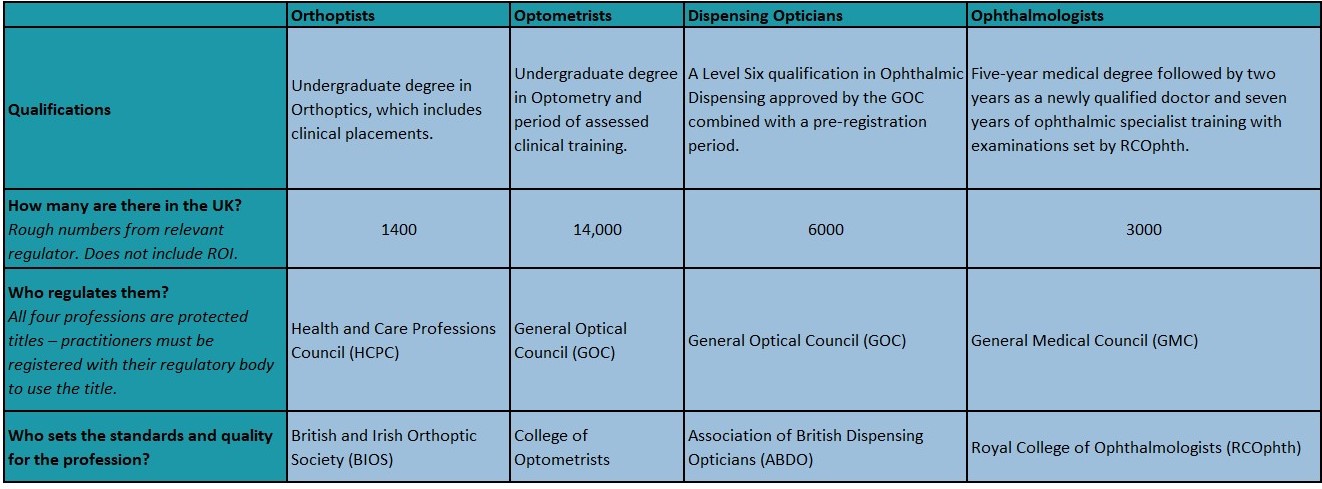Orthoptist, Optometrist or Ophthalmologist?
Aside from Orthoptists, there are a number of other professions working in eye health. Unhelpfully they also all begin with ‘O’! This is our brief guide to the main differences between Orthoptists, Optometrists and Ophthalmologists.
What is an Orthoptist?
Orthoptists are the experts in diagnosing and treating defects in eye movement and problems with how the eyes work together, called binocular vision. These can be caused by issues with the muscles around the eyes or defects in the nerves enabling the brain to communicate with the eyes.
They see patients with a wide range of conditions affecting their vision. They are trained to offer a range of treatments, including eye patches, eye exercises, prisms or glasses. They also commonly work with patients with neurological conditions, such as stroke, brain tumours or multiple sclerosis.
The majority of Orthoptists are employed by the NHS in hospitals or community eye services. Although many also work in rehabilitation centres and special and mainstream schools. They will often work in wider eye care teams, alongside Ophthalmologists and sometimes Optometrists.
You can find out more about Orthoptists here.
And how is this different from the other eye care professions?
Ophthalmologists are medically trained doctors that specialise in diseases and injuries in and around the eye. They act both as physicians, diagnosing and prescribing treatments, and surgeons, performing operations. They typically work in eye hospitals and hospital eye departments, often alongside Orthoptists.
Orthoptists will often work collaboratively with Ophthalmologists to investigate and manage diseases of the eyes, with Orthoptists specialising in non-surgical treatment. While Ophthalmologists, as medical doctors, are able to perform complex surgery prescribe a wider range of medicines.
More information can be found on the Royal College of Ophthalmologists website.
Optometrists are trained to examine the eyes to detect defects in vision, signs of injury, ocular diseases or abnormality. They also identify the signs of problems with general health, such as diabetes of high blood pressure. All Optometrists are able to offer clinical advice, prescribe glasses or contact lenses and refer patients for further treatment. They typically work in high street opticians, carrying out eye examinations, but some also work in hospitals or community clinics.
Whereas an Orthoptist is concerned with how the eyes work together and interact with the brain to create vision, Optometrists are primarily focused on the examination of the eye itself.
More information can be found on the College of Optometrists website.
Dispensing opticians are trained to advise on and fit glasses according to a prescription provided by an Optometrist or specialist Ophthalmologist. They are skilled in offering advice on lenses for specific purposes, such as night driving, UV protection or sports and safety wear.
More information can be found on the Association of Dispensing Opticians website.
